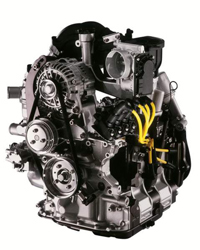Opel Rekord P0110 Engine Trouble Code
When your car's 'Opel Rekord P0110 Check Engine' light comes on, it's usually accompanied by a sinking feeling in the pit of your stomach. The light could mean a costly problem, like a bad catalytic converter, or it could be something minor, like a loose gas cap. But in many cases, it means at minimum that you'll be visiting the car dealer to locate the malfunction and get the light turned off.
Opel Rekord P0110 Code Meaning :
| P | 0 | 1 | 1 | 0 |
|---|---|---|---|---|
| OBD-II Diagnostic Powertrain (P) Trouble Code For Engine | Intake Valve Control Solenoid Circuit Low | Fuel Rail/System Pressure - Too High | Engine Shutoff Solenoid Malfunction | Shift Solenoid E Performance or Stuck Off |

|
When you check Opel Rekord car engine light came on code P0110 the reason should be Engine Light ON (or Service Engine Soon Warning Light). However manufacturer may have a different definition for the P0110 OBD-II Diagnostic Powertrain (P) Trouble Code. So you should chech it on our car models. |
P0110 Fault Symptoms :
|
If one of these reasons for P0110 code is occuring now you should check P0110 repair processes.
Now don't ask yourself; What should you do with P0110 code ? The solution is here : |
Opel Rekord P0110 Possible Solution :
Disconnected, dirty or fouled spark plugs are common causes for engines that won't start. Spark plugs typically need to be replaced every season or 25 hours of use. You should also check that the spark plug gap is set properly. If your spark plugs look good, problems with your ignition system can also preventing a spark. These can range from a faulty spark plug lead, shorted kill switch or flywheel key damage.
P0110 OBD-II Diagnostic Powertrain (P) Trouble Code DescriptionP0110 OBD-II Trouble Code The P0110 code.Reason For P0110 CodeThe reason of P0110 OBD-II Engine Trouble Code is Fuel Rail/System Pressure - Too High. |
Parts or components should not be replaced with reference to only a P0110 DTC. The vehicle service manual should be consulted for more information on possible causes of the fault, along with required testing.

